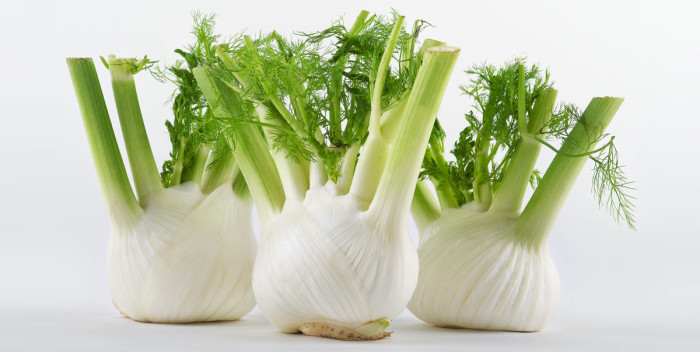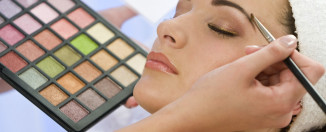Fennel: benefits, harms, contraindications
People learned about the benefits of fennel in ancient times. This plant belongs to the celery family. It has many advantages, thanks to which it has received recognition from both traditional medicine and doctors. Let's take a closer look at how fennel can help improve health.
Content
The benefits of fennel
Regular consumption of this plant helps a person get rid of many health problems:
- it helps to reduce the feeling of hunger, due to which it is successfully used in various diets and drugs for obesity;
- has a beneficial effect on the work of the pancreas;
- helps to restore the liver in case of toxic lesions;
- has good energetic properties;
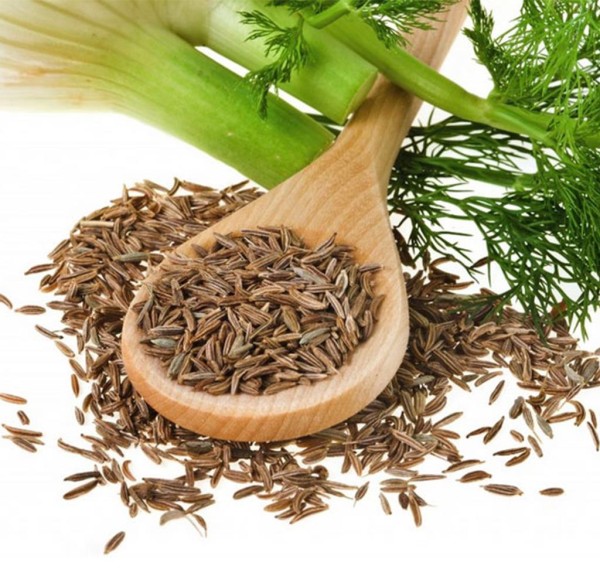
- it is an excellent remedy against viruses - the use of fennel during seasonal outbreaks of viral infections helps to resist and protect from infection;
- is a good antioxidant, helps to restore and rejuvenate the skin and the whole body;
- it is used for all types of pulmonary diseases;
- helps to increase immunity and eliminate toxins;
- has a positive effect on the nervous system, therefore it is useful for any disorders, fears and depression;
- helps to improve memory, therefore it is recommended to use it even with dementia and Alzheimer's disease;
- excellent diuretic;
- dilates blood vessels;
- has an expectorant effect, so fennel is recommended for coughing.
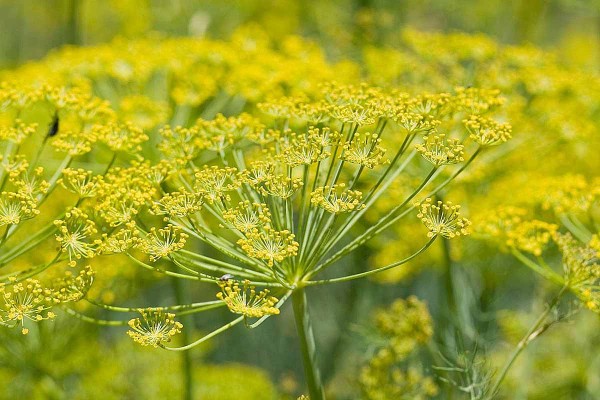 And this is not a complete list of its useful qualities. Thanks to all these wonderful properties, fennel is actively used both in medicine and in cosmetology. Fennel creams give the skin elasticity, and tea with this plant helps to remove toxins.
And this is not a complete list of its useful qualities. Thanks to all these wonderful properties, fennel is actively used both in medicine and in cosmetology. Fennel creams give the skin elasticity, and tea with this plant helps to remove toxins.
Fennel harm
Despite the enormous benefits that this medicinal plant brings, there are also negative aspects. Fennel does not contain toxins and carcinogens, therefore, negative consequences from it can occur only of an allergic nature.
Fennel contraindications
Since this plant contains neither harmful substances nor GMOs, it can even be consumed by nursing mothers, very young children and the elderly. 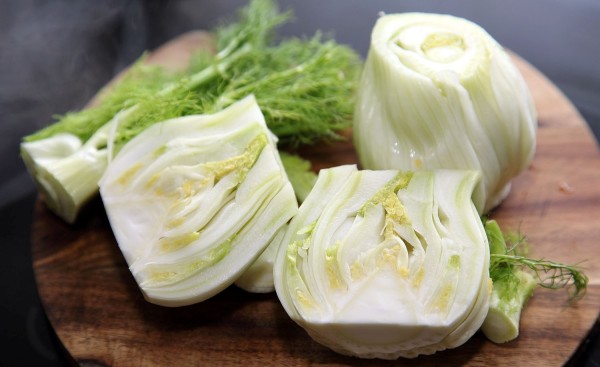 There are few contraindications to the use of fennel:
There are few contraindications to the use of fennel:
- pregnancy, especially at the very beginning;
- diarrhea (fennel can have a mild laxative effect);
- fennel can be taken only for babies from 4 months;
- epileptic syndrome;
- tachycardia.
In addition, dosage must be followed carefully to avoid skin problems and indigestion.
The use of fennel
Fennel is a versatile herb that is widely used in medicine, cooking and cosmetology. Its roots and fruits are used to make decoctions, and tea is brewed from the leaves and flowers. 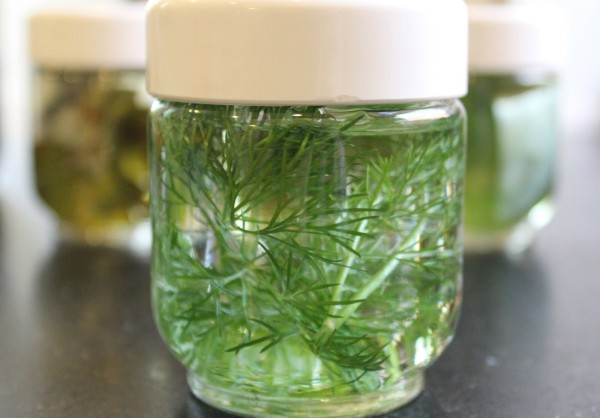
In addition, it is an irreplaceable remedy in the difficult matter of losing weight... It is used in different ways. For example, you can simply chew its seeds, this will help trick the feeling of hunger and reduce appetite. Its diuretic effect is also important.
If, in addition to being overweight, you have depression or severe nervous anxiety, drink a fennel decoction. To do this, pour boiling water over 20 seeds and boil them for a couple of minutes. Then it is insisted for about half an hour, drunk before meals for 1-2 months.
Fennel is good for use in different dietary meals... For example, a salad is made from it: cut a root of fresh fennel, season with vegetable oil and lemon juice. Both tasty and healthy. 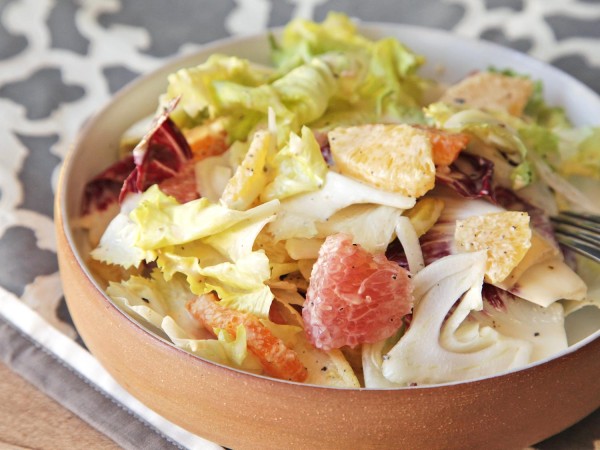
Decoctions and tinctures based on fennel are good for bloating, promote the separation of phlegm, as well as normalize the digestive process.
The extract of this plant has a pronounced antibacterial and antifungal effect. Therefore, fennel is included in many medicines prescribed for elimination of diseases associated with the lungs, diseases of the genitourinary system, gastritis, cholecystitis.
As for cosmetology, they use, most often, the oil of the miracle plant. Its unique healing properties have been known since antiquity: it helps to strengthen the hair and has a beneficial effect on the skin, smoothing and moisturizing it, and accelerating the healing process.
Fennel during pregnancy
Despite the fact that fennel is practically harmless, it is better not to use it throughout pregnancy, since the plant makes the intestines work more actively. Because of this, the muscles of other organs can be activated, for example, sometimes uterine contractions begin, leading to a miscarriage. 
But when breastfeeding, you can take fennel. If you drink three to four glasses of tea a day from it, the flow of breast milk increases. They drink it for three days, after which it is necessary to take a break and, if necessary, repeat the course.
Since fennel is a rather active plant, it is better to consult a doctor before using it during lactation. If this is not done, there is a risk of allergies in the baby.
Fennel for newborns
For babies who have reached 4 months of age, it is useful to give fennel in the form of a solution when intestinal colic and sleep disorders. In the composition of tea and solutions based on this plant, there is inulin - a probiotic that helps to improve the functioning of the intestines in a child. In addition, fennel promotes better absorption of calcium, which is very important for the formation of the baby's skeletal system.
To properly brew tea for the little ones, it is enough to pour 0.5 tsp. seeds with a glass of boiling water. This drink contains a lot of vitamin C, but there are no sugar and dyes, so you can give it without fear. It is best to do this between meals. If the child refuses to take the infusion, you can try adding breast milk there.
Fennel oil
Since the seeds have an oily texture, they are used to make oil. 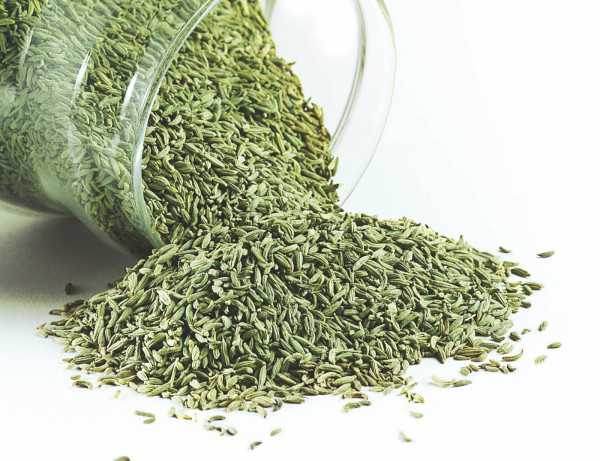 It is used very widely, although it must be done carefully, that is, it is better to add oil in minimal dosages. For example, literally a couple of drops of oil can help relieve symptoms of food or alcohol poisoning. In addition, it is indispensable in the manufacture of solutions for coughs and flatulence, and is also widely used in cosmetology.
It is used very widely, although it must be done carefully, that is, it is better to add oil in minimal dosages. For example, literally a couple of drops of oil can help relieve symptoms of food or alcohol poisoning. In addition, it is indispensable in the manufacture of solutions for coughs and flatulence, and is also widely used in cosmetology.
For example, this oil is good for adding to balms and hair shampoos. Enough 10 drops per 100 g of the product, and after a while you will not recognize your hair: it will become elastic, silky, dandruff will disappear.
Like many essential oils, fennel is used for bathing. 7-8 drops are mixed with either salt or soda. This mixture, if necessary, is dissolved in water, immediately before the bath procedures. 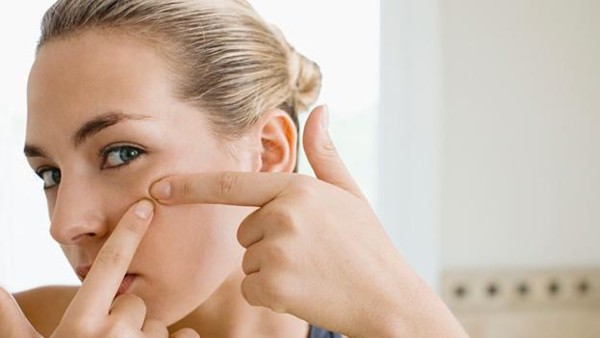
Fennel oil is used to treat acne. To do this, 5 drops of the miracle oil and 2 times more lavender and tea tree oil are mixed with 50 g of alcohol.
It is also used to create homemade creams and face masks. There are many cooking options: for this they use a base of cottage cheese or clay, add fresh vegetables or fruits and, of course, priceless fennel oil.
So there are almost no contraindications for fennel, but the benefits are undeniable. Therefore, a useful plant must be a frequent guest in every family.
